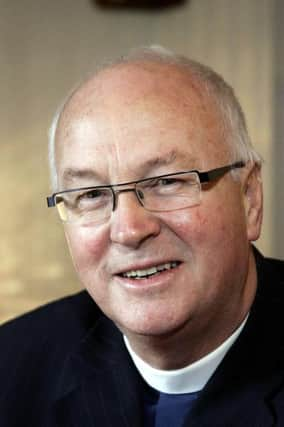THOUGHT FOR THE WEEK: The short man who could not bow


It reads: ‘St. Petersburg has 500 bridges, you have only one head.’
The fascinating city presents photo opportunities at every turn, and the tourist who pops up and down incessantly, places himself in grave danger from the bridges overhead.
Advertisement
Hide AdAdvertisement
Hide AdAnyone sustaining an injury in those circumstances might feel like the late President Ronald Reagan. When in hospital after a failed assassination attempt, Reagan joked with his wife, saying, “Honey, I forgot to duck.”
Let me introduce you to a Christian leader who refused to duck. James Guthrie was born into considerable affluence in Angus, Scotland, in the seventeenth century, but when a student at St. Andrews’s University, he espoused Presbyterianism - a choice which placed him in conflict with the political and religious leaders of the time.
Feeling called to the ministry, he spent many years as minister in Stirling, becoming a fearless advocate of Presbyterian principles. Central to those principles is the conviction that Christ alone is head of the church and not any earthly ruler. He met with Oliver Cromwell several times, pleading unsuccessfully for legal support for Presbyterian worshippers. Yet he left an abiding impression on the Lord Protector, who famously described him as, ‘the short man who could not bow.’
When Charles II became King after the Restoration, a fresh attempt was made to impose Anglicanism - with the King as head of the church - upon a reluctant Scotland. Guthrie and his friends again pleaded for legal protection, but Guthrie was soon arrested for his pains, and was sentenced to death. On the scaffold, he said: “I durst not redeem my life with the loss of my integrity. I did judge it better to suffer than to sin.”
Advertisement
Hide AdAdvertisement
Hide AdThose who knew Guthrie best knew that he was a man to stand by his principles, and, if necessary, to suffer for them. At one point, a Mr. Rollock, minister of Perth , reminded Guthrie of a Scottish proverb, ‘Jouk (duck) that the wave may go over you’, and asked, “Will you jouk a little, Mr. Guthrie?”
Gravely James Guthrie made his reply: “There is no jouking in the cause of Christ.”
Jesus told a parable about a sower, and the kind of soils in which God’s word is sown. He talked about seed sown on rocky places. The seed of God’s word was received with joy, and prospered for a while.
But, said Jesus, ‘when trouble or persecution comes because of the word , they quickly fall away.’(Mark 4; 17). Guthrie was not of that sort. In his own way he followed the example of Martin Luther who famously said, ‘Here I stand, I can do no other’.